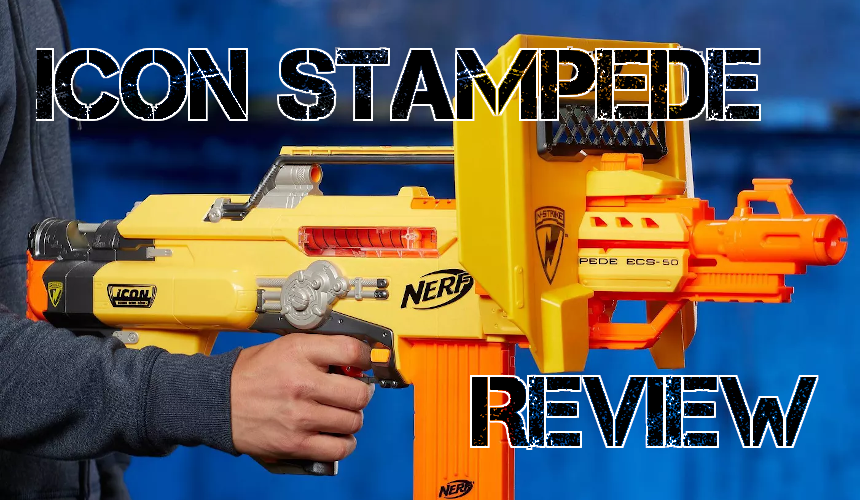Hasbro likes to do specialty line releases with various retailers – Gamestop has first dibs on the Overwatch blasters, Walmart gets Battlecamo, etc. In Target’s case, one of those specialty lines is the Icon Series, a line of previously popular blasters that have been rereleased and (supposedly) updated for the modern blaster era. Leading the pack is the Stampede, Nerf’s big clip-fed automatic blaster from 2010. While it does seem to have better performance, it also comes with less, and costs more than the original. If you’re a collector (or feeling nostalgic), you’ll still love the blaster, especially on sale. If you purely want modern performance for a good price, however, you may end up looking elsewhere.
A Classic Reborn
This Stampede still includes a shield attachment, but lacks the original bipod grip, as well as the additional mags of the original.
Using the Blaster
For those familiar with airsoft, this is a similar sort of electronic geared system for firing projectiles, just scaled for Nerf darts.
Performance
There is a large jam door if you need it, but I never had any issues.
Internals
The Stampede is beloved among modders. Can other blasters do more? Certainly. But the fun complexity of the internals, plus the feel and sound of the blaster priming and firing, means there are plenty of dedicated fans.
I ended up not needing to photograph the internals, because they’re essentially the same. The switch on the side serves as a master on/off, and the trigger serves to start a cycle of gears and moving parts. Once the trigger is pressed and the system begins to move, a secondary switch is pressed internally. This switch keeps power supplied throughout the cycle to complete it, even if the trigger is released.
The plunger is smaller than that of a Longshot, but still large compared to many modern spring-powered blasters.
Final Opinions
The Icon Series Stampede is a fun piece of nostalgia, updated slightly to make it not completely inferior to other modern blasters. But it also comes at a cost – $70 MSRP is nothing to sneeze at, especially when the original retailed for $50 and came with more things. But if you find it on sale and have a place for it in the collection, it should make you happy. Just be aware that, if you’re chasing performance, better options exist.

